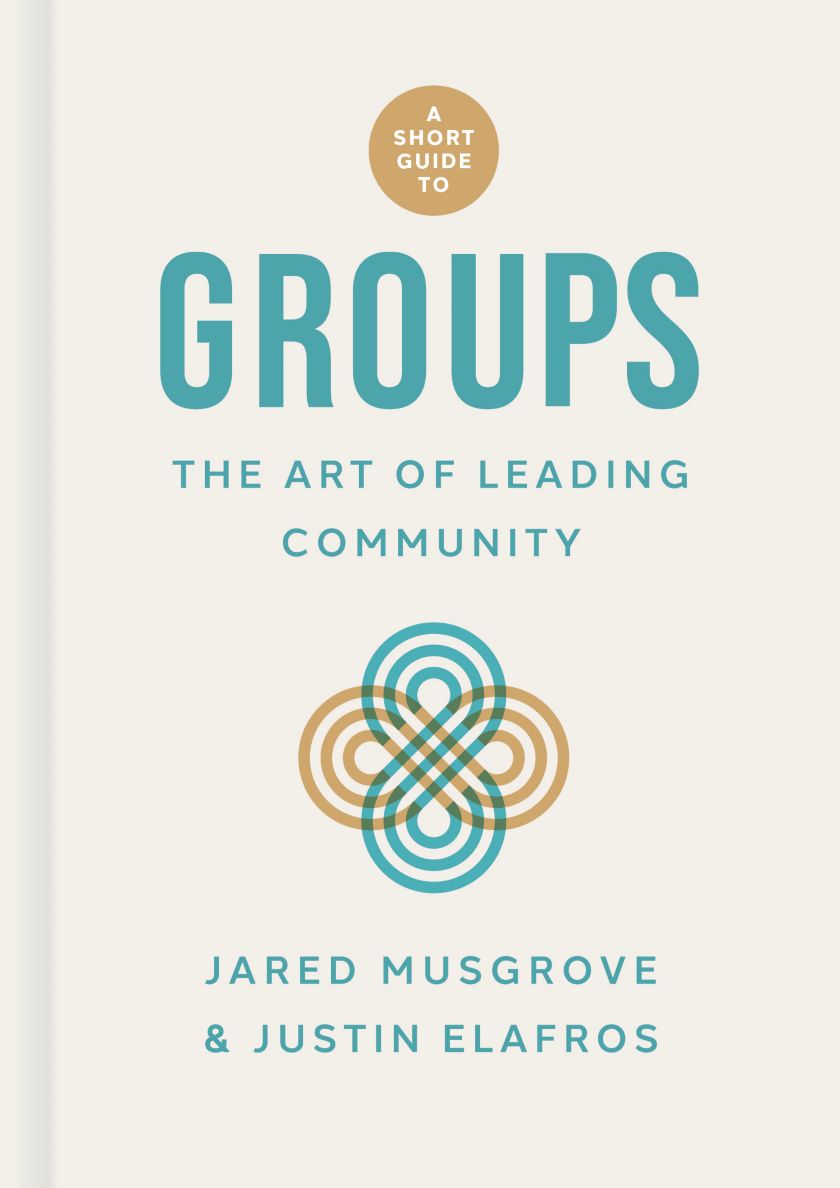Many times, pastors want groups that just work. We get into the most trouble when we treat groups, and even people, as a science.
How do we make small groups work? Groups are made up of people, and people are broken. So groups can get messy. Still, pastors and church leaders can develop the art of leading community well.
In their book, A Short Guide to Groups: The Art of Leading Community, Jared Musgrove, pastor of The Well Community Church in Argyle, Texas, and Justin Elafros, groups pastor at The Village Church in Flower Mound, Texas, remind pastors of the necessity of community and the biblical beauty of groups despite their messiness.
In what ways are groups essential to the call of the Christian? And what is the role of the pastor in communicating that to their people?
Jared Musgrove: As communicators of the gospel, recognize sermons are meals. They sustain you and keep you going. But godly relationships are where God tends to do the most work in us.
Most of our churches, regardless of size, are going to need some sort of smaller group context where people are talking about what it looks like to live that call of God we got on Sunday.
Justin Elafros: Groups unlock the opportunity people have to use their gifts for the betterment of the body. The pastor’s responsibility is to call people to discover, develop, and deploy their gifts. Most environments we create are passive. And we’ve got to get them more active and using their gifts for the local body.
“Groups unlock the opportunity people have to use their gifts for the betterment of the body.”
Justin Elafros
In your book, you say groups are an art, not a science. In what ways are pastors and church leaders tempted to treat groups like a science?
Jared Musgrove: We get into the most trouble when we treat groups and even people as a science. Many times, pastors want something that just works. Groups work best when you treat them as an art because you are dealing with people with different backgrounds.
Justin Elafros: We’ve been so formed by consumerism we think everything should happen with effectiveness and efficiency and without loss. But transformation requires loss. And we expect that in our discipleship too. The industrial complex of the church has robbed us of the relationships that exist in the church.
Why do groups work better when pastors and church leaders begin to treat them like an art?
Jared Musgrove: Groups are where we tend to see the Spirit do the most transformation. Everyone says they want transformation, but a lot of us won’t go through the relational rub it takes. The less relational your church is, the less transformational your church will be.
When you enter into the art of groups, you’re going to get a lot of relational variables. But it’s not just the Wild West. Scripture gives us “one another” commands so we know how to navigate our relationships with one another.
Justin Elafros: You get nuanced discipleship. You get people living out their spiritual gifts. You get spiritual family. And you get courageous Christians.
“The less relational your church is, the less transformational your church will be.”
Jared Musgrove
What can pastors do to help build a culture in their churches that affirms lasting transformation happens in community?
Justin Elafros: You talk about it and bring it to the forefront. You structure environments in such a way that it doesn’t create consumerism. In an ideal world, you talk about your church in the sense of being a church of small groups that happen to meet on Sunday morning. You share stories of transformation on Sunday morning. Commission small groups in your Sunday morning service as they launch.
Why is it important for pastors to give group leaders a clear purpose for their group related to the overall goal of the church?
Justin Elafros: Vision leaks. But people don’t follow vision. They follow clarity of vision. Because groups are more organic in nature, it’s hard to keep the “why” in front of everybody.
Jared Musgrove: Groups are the best shot we’ve got at biblical living within the church. What are we doing with the Sunday sermon? If the pastor preaches on Sabbath rest, where do we talk about the living of that? What does it look like for me to practice this in the 21st century? Group is a place to say, “What is God telling you to do? And how can we help?” That’s where it’s most effective.
What insights would you offer pastors who are seeking to determine the formats that work for groups in their churches (homes v. church building/third place)?
Jared Musgrove: Proximity, presence, and context are all important. What’s fun is that you don’t have to take the groups system anyone else is using. Who has God brought you? What are the needs in your church?
Justin Elafros: Simply, it’s: “Why do you need this ministry?” When you pick your model, you pick your problems. What’s the problem in your church, and how are you trying to solve that within groups ministry? That’s how you define what you need at the time. And that can change over time. Groups are a place for your people to practice their spiritual gifts, so that should shape how you view your groups ministry.
How can pastors equip group leaders to lead healthy groups at each stage of the group’s life cycle, not allowing the group to become stagnant?
Jared Musgrove: The first step is unveiling the stage for them. Let them have the “aha” moment that there will be stages in the life of the group.
Justin Elafros: Give them a good understanding of where they are on the map. Then ask questions like: “Who are you? What are your gifts? How do you live those things out?”
Jared Musgrove: Help them find where they might get stuck. You cannot fast forward through any period of the group. Thinking about the stages of a group is a helpful tool we’d recommend pastors use to coach each group leader through where they are in the group. It defines what the group may need to be doing in that season and where you can help the leader develop.
How can pastors help groups and group leaders think in a healthy way about starting new groups?
Jared Musgrove: God has assignments for us, and sometimes those assignments bring us together for a season and then move us away. So, learning how to say gospel goodbyes in the life of the group is important. How you begin the group will help the group end or multiply. If you don’t put that expectation of multiplication or further assignment for group members, then it will become a stagnant pool. And when change happens, it will not be seen as a gospel good.
Justin Elafros: The key is we not only train the leader but create environments where the member is also trained so they have the expectation that their group is not going to be together forever, and that’s actually a good thing.
“For a pastor to be a champion of groups, he must also be a recipient.”
Jared Musgrove
Being in community is hard. It takes work. How can pastors lead the way in saying “It’s worth it”?
Jared Musgrove: For a pastor to be a champion of groups, he must also be a recipient. That doesn’t mean every pastor needs to lead a group. But the pastor has to talk often about the change God does in His life through community.
Groups are an art, not a science. There's no one-size-fits-all formula for designing transformational groups that God uses to mold people into the image of Christ together.
Groups, at their core, embody the call to love one another found sixty times throughout the New Testament. This book is for people who love the possibilities of groups. And for those who want to.

